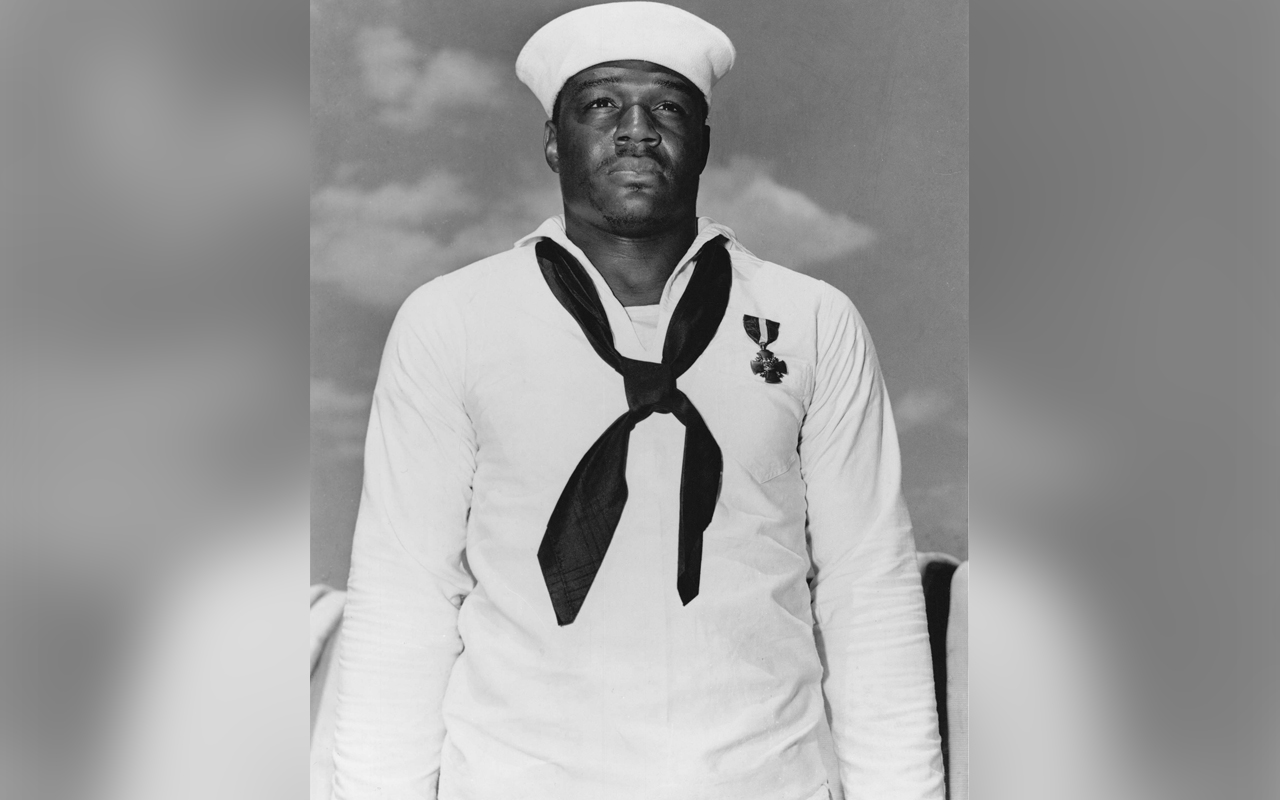[ad_1]
Doris “Dorie” Miller didn’t think about heroism on Dec. 7, 1941, when he grabbed an anti-aircraft gun aboard the USS West Virginia and fired at Japanese fighter planes attacking Pearl Harbor. Because he died in combat two years later, he never knew how grateful the country would be for his valor.
He has been among the most celebrated Black heroes of World War II. His image was used to recruit African-Americans into the war effort, he was remembered on a postage stamp, he was portrayed by Cuba Gooding Jr., in the film Pearl Harbor, and his story is told in several museums including the Smithsonian National Museum of African-American History and Culture.
Announced coinciding with Dr. Martin Luther King, Jr Day 2020, in a press release, the Navy said that the future USS Doris Miller will be the “premier forward asset for crisis response and humanitarian relief, and early decisive striking power in a major combat operations.” This is the first time the Navy has named an aircraft carrier named after African American.
Back in 2016 Rep. Eddie Bernice Johnson advocated for Miller to receive a posthumous Medal of Honor.
Johnson, a Texas Democrat who grew up in the same Waco, Tex., neighborhood that Miller was from has been fighting to get the recognition for him for several decades. Although it’s an uphill battle, she says she’s determined to win.
“I have lobbied the Department of the Navy about as much as I know how to lobby them,” Johnson told the Dallas Morning News. “I’ve been working on it ever since I’ve been here, and I don’t know that I am any closer.”
When she was just seven years old, she went door to door in Waco asking for donations with her father so that they could honor Miller. Johnson recalls seeing him during a stateside tour before he reported back for duty at Puget Sound Navy Yard in Washington. “I remember him coming home after Pearl Harbor,” Johnson said. “He was a real hero. He continues to be a real hero.”
Miller, who was barred from serving in combat because of the then-segregated military served as a Mess Attendant, Third Class aboard the USS West Virginia, stationed at Pearl Harbor, Hawaii when Japanese torpedoes struck the ship. He assisted in moving the ship’s captain before loading an anti-aircraft machine gun and firing against the airborne attackers. He then continued to assist in saving the lives of crew members throughout the duration of the attack.
In 1942, he was awarded the Navy Distinguished Service Cross for his bravery. Two Congressmen, Sen. James Mead and Rep. John Dingell Sr., both introduced bills to award Miller the Medal of Honor, but they never passed. Then-Secretary of the Navy Frank Knox wrote a commendation for Miller, but also recommended against giving him the medal.
After duty at Puget Sound, he reported to the USS Liscome Bay. The ship and its crew fought in the Battle of Makin Island in the South Pacific and took a torpedo hit, sinking it. Miller was one of the 700 crewmen who died in the battle.
Navy rules state that for a serviceman to get the medal more than three years after the act of bravery, special recommendation from the Secretary of the Navy to reopen the case. In 2015, the Navy said that racial discrimination had played no part in Miller being denied the medal according to a study.
“The 1988-1989 study concluded there was no evidence of racial discrimination in the Miller case and the heroic acts of Petty Officer Doris Miller did not rise above the line between the Medal of Honor and the Navy Cross. In 1996, a second study came to the same conclusion,” Navy spokesman Lt. David Bennett, told the Morning News at the time.
[ad_2]
Source link

